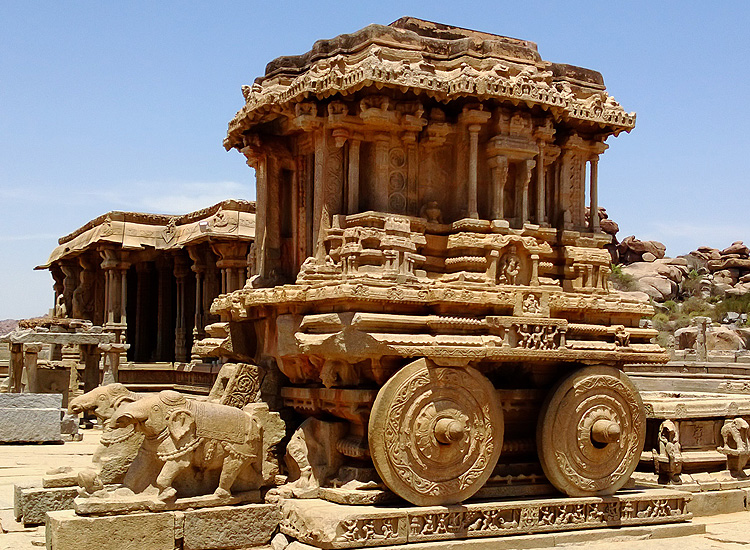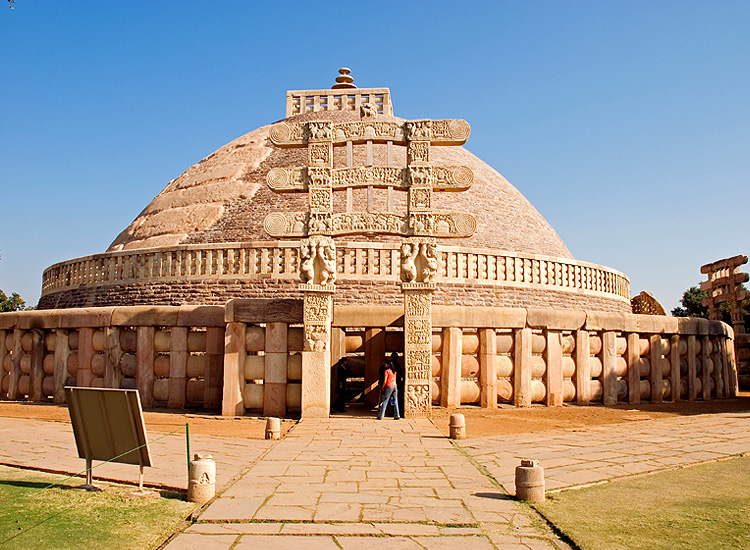Travel across
the length and breadth of India. What is it that draws your attention the most?
It’s the landmarks, those massive monuments standing in the form of forts,
caves and palaces that remind us of the glorious legacy and history of this
country. Nature too, has smiled abundantly on this land, and going from one
corner of the country to the other lets you witness the diversity and richness
of its landscape.
At present,
India is home to 36 UNESCO World Heritage Sites, each of which is a repository
of history and culture, or simply a wonder of nature. While one may be an
architectural marvel dating back to ancient times, the other may surprise you
with its raw beauty. For tourists, these 10 must visit UNESCO World Heritage
Sites in India can be an enthralling experience, with each monument or cave or
wildlife sanctuary offering a new experience.
1. Taj Mahal , Agra

Taj Mahal
stands as a symbol of eternal love and sacrifice. This world heritage site, and
one of the “wonders of the world”, was built by Mughal emperor Shah Jahan in
memory of his wife, Mumtaz Mahal. On a full moon day, its beauty verges on the
surreal, while on a winter morning when its enveloped in fog, it appears to be
suspended in mid-air.
During the evenings, this fabulous monument, built in
white marble, is bathed with the sun’s rays, and appears particularly
spectacular. The main gateway to the mosque is decorated in calligraphy with
verses from the Holy Quran. The garden, spread out in front of the Taj Mahal,
is built in Islamic style and represents Paradise in Islam. The four minarets
of the Taj Mahal also arouse a lot of interest. They are slightly inclined
outwards so that in the event of an earthquake, they fall on the gardens and
not on the mausoleum itself.
AMAZING FACTS :
2.Great Monuments at Hampi

The Group of
Monuments at Hampi, for lack of a better word, are
one of the foremost
attractions in Karnataka. Having once served as the
capital of the city of Vijayanagara, it still displays the levels of perfection
achieved in architecture during that period. Everywhere your eyes go, you see
the remnants of that glorious period in the form of temples, palace and other
structures.
Virupaksha Temple is one of the many attractions here. With its 9-story tall gopura, this is where Lord Shiva is believed to have marry Goddess Parvati. There are the long bazaars which once served as great centers of commerce. Vijaya Vittala Temple, which assumes a golden color under the setting rays of the sun, is another great attraction with its 56 musical pillars. The Lotus Mahal, the Royal Enclosure, the Elephant Stables and the Hazararama Palace Temple, besides many others. Hampi holds in store a lot of opportunities for exploration and sightseeing.
AMAZING FACTS :
3.Konark Sun Temple
A UNESCO World Heritage Site, Konark Sun temple is a striking model of ancient artistry, fluidity of ideas, and a pedagogic treasury. Dedicated to the sun god, Surya, the first rays of the sun fall on the entrance of the temple. Much of the temple has fallen into rack and ruin but what remains still holds enough charm to captivate. An interpretation of a greater imagination, it has seen empires rise and fall, identities washed away, yet appealing to our sensorium even today.
Believed to have been built in the 13th century CE the temple was built by the King Narasimhadeva I hailing from the Eastern Ganga dynasty between 1238-1250 CE. The temple was commissioned by the king while Samantaraya Mahapatra was the one in charge of its construction. ‘Konark’ means the sun and the four corners. The temple was called Black Pagoda attributing to its dark facade by the Europeans who used it for navigation for their ships. It is said that the temple could draw ships to the shore due to its magnetic powers.
AMAZING FACTS :
4.Buddhist Monuments at Sanchi , Madhya Pradesh

Sanchi is
most famous for its Buddhist stupas, those famous hemispherical structures
which contain the relics of Gautama Buddha and his followers. These stupas were
built on the orders of Emperor Asoka in order to preach and preserve the
Buddhist philosophy.
The grandest structure of is undoubtedly the Sanchi Stupa.
Standing at almost 42ft, it’s a marvelous sight to come across. The other
stupa, which sits on top of the hill, is also as amazing architecturally as the
first. While here, look out for the Great Bowl which was used to distribute
foods to the monks. In close proximity to the Great Stupa lie the relics of
Buddha’s two disciples: Sariputta and Mahamogallena. The other sight worth
exploring is the Gupta Temple, the earliest known example of temple
architecture in India.
AMAZING FACTS :

The Group of
Monuments at Mahabalipuram are one of the UNESCO World
Heritage Sites in India, and display the levels
of architectural excellence achieved in the past. Located about 58km from
Chennai in the Coromandel Coast of the Bay of Bengal, these temples were built
under the rule of Pallava rulers.
One striking feature about these temples is that they are
carved out of rock and are an important achievement in the history of rock cut
architecture in India. These group of monuments include Descent of the Ganges,
India’s largest open air bas relief. Some of the other attractions worth
checking out are Arjuna Ratha,
Draupadi Ratha and Pancha Rathas,
besides others. Each of these monuments seem to surpass the other in terms of
their aesthetics and grandeur.
AMAZING FACTS :
Comments
Post a Comment